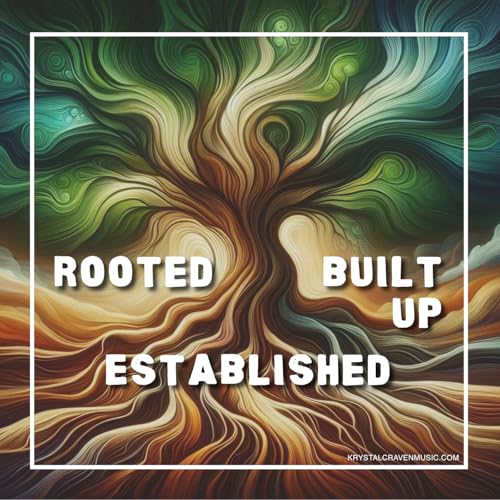Therefore, as you received Christ Jesus the Lord, so walk in him, rooted and built up in him and established in the faith, just as you were taught, abounding in thanksgiving. (Colossians 2:6-7)
Paul begins this passage by reminding us of what happened when we first received Christ. The Greek word here for ‘received’ means “to join to oneself, to associate with oneself.” When we came to faith, we weren’t just agreeing to a set of beliefs—we were joined to Jesus Himself, becoming one with Him. Our identity is now in Jesus.
Because of that union, Paul commands us to walk—to regulate and conduct our lives—in Christ. The word “in” (en) here is beautiful. It denotes a fixed position, a place of rest, where we give ourselves wholly to Christ. It’s not like “with” (para), which means to be close beside. We are in Him, abiding and resting in that relationship.
Paul then describes three things God has done and is doing in us:
Rooted – This verb is in the perfect tense, meaning it’s a completed action with lasting effect. We have been firmly planted in Christ, our stable and unshakable foundation.
Built up – Present tense. God is actively building on that foundation in an ongoing, continual way.
Established – Also present tense. God is continually stabilizing and making us steadfast in our faith and fellowship with Him.
Also take notice that these three verbs are written in what’s called the passive voice in the Greek—meaning we are the receivers of the action, not the doers. God Himself is the One rooting, building, and establishing us. Our role? Abide.
And Paul ends with a command: be abounding in thanksgiving. The Greek means to overflow beyond measure, to excel in gratitude. This isn’t polite table-grace thankfulness—it’s an extravagant, overflowing response to God’s grace. The word thanksgiving (eucharistia) reminds us of the heart posture we are to carry daily: gratitude for the One who gave Himself so we could receive Him, be rooted in Him, and grow in Him.
We began by receiving Christ; we continue by resting in Him and letting Him do the work that keeps us stable, grounded, and overflowing in thanks. So continue to abide in Him, abounding in thanksgiving, and let God do that work!
 2026/02/265 分
2026/02/265 分 2026/02/1910 分
2026/02/1910 分 2026/02/124 分
2026/02/124 分 2026/02/056 分
2026/02/056 分 2026/01/295 分
2026/01/295 分 2026/01/225 分
2026/01/225 分 2026/01/156 分
2026/01/156 分 2026/01/084 分
2026/01/084 分
